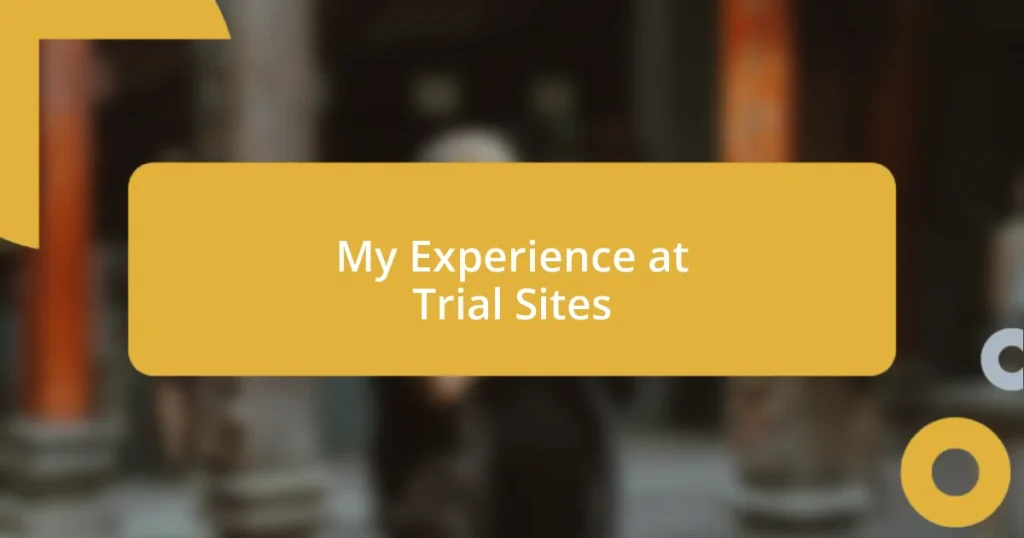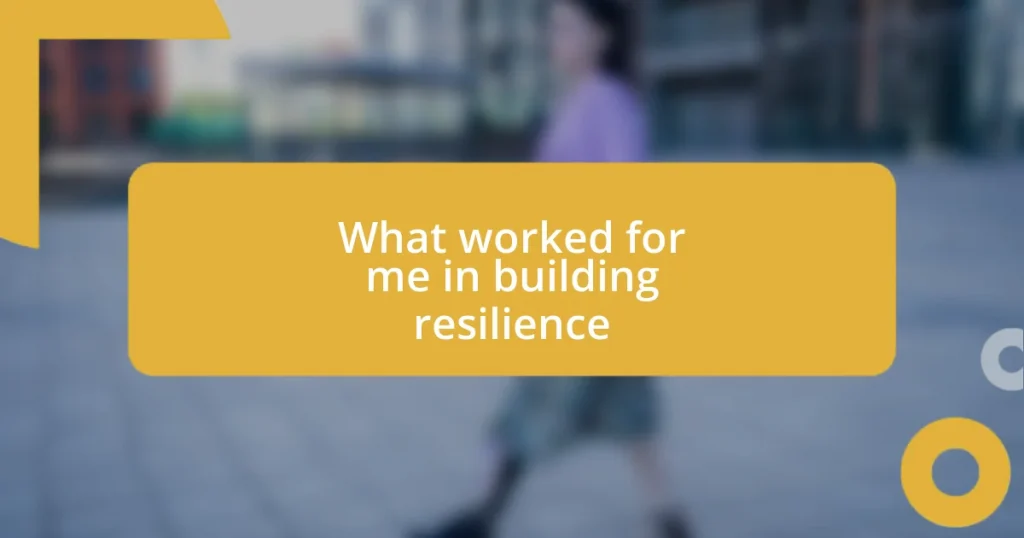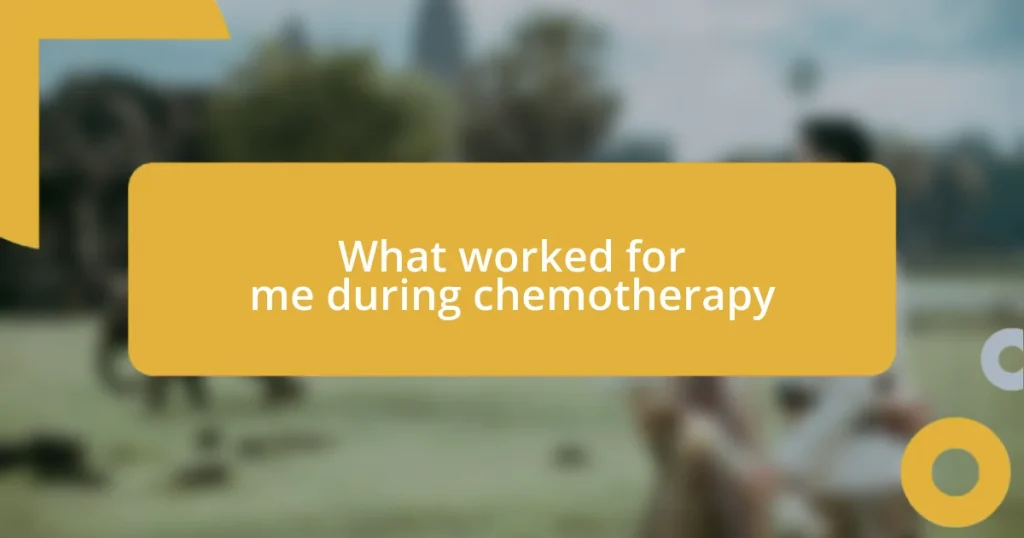Key takeaways:
- Thorough preparation, both emotionally and physically, is essential for a smoother experience in clinical trials, including understanding the trial protocol and addressing personal concerns.
- Effective communication with trial staff fosters trust, alleviates anxiety, and enhances participant engagement, empowering individuals to share thoughts and questions freely.
- Participating in trials offers considerable benefits, including access to innovative treatments and heightened health monitoring, while also providing a supportive community among fellow participants.

Preparing for a clinical trial
Preparing for a clinical trial can feel overwhelming at first. I remember the flutter of nerves as I gathered all my medical records. Did I have everything the trial teams needed? It’s crucial to be thorough; they rely on your history to assess if you’re a good fit for the study.
Once you’ve got your documents in order, consider your mindset. It’s not just about the physical preparation; emotional readiness matters too. I found that discussing my concerns with someone I trusted made a huge difference. Have you thought about how participating will affect your daily life?
Finally, understanding the trial protocol can alleviate a lot of anxiety. When I first read through the information, terms like “placebo” and “informed consent” felt daunting. But grasping these concepts helped me feel empowered. What’s your biggest worry about the process? Addressing those fears will pave the way for a smoother journey ahead.
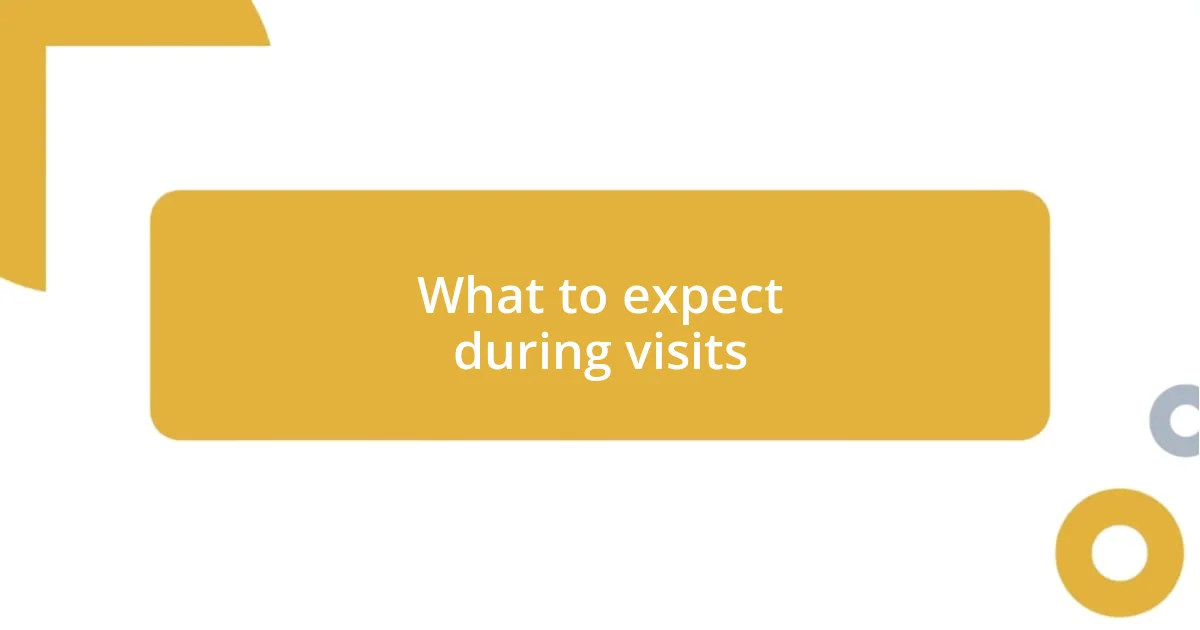
What to expect during visits
During visits to trial sites, you can expect a mix of routine checks and deeper discussions. My first visit felt like stepping into a blend of a clinic and a laboratory, with a friendly but professional atmosphere. The staff was welcoming, and their detailed explanations eased a lot of my initial anxieties. Each appointment often begins with a simple health assessment, followed by conversations about your progress.
Here’s a quick rundown of what typically happens during these visits:
- Health assessments, including vital signs and lab tests.
- A thorough review of any changes in your medical history or symptoms.
- Discussions about the trial’s expectations, including possible side effects.
- Opportunities to ask questions or express concerns, which I found important for my peace of mind.
Sometimes, I felt a bit out of my depth, especially when discussing results or new information, but the staff always made it clear they were there to help. It’s completely natural to feel a range of emotions during these visits; I often left feeling hopeful, yet a little anxious, as I navigated this new path.
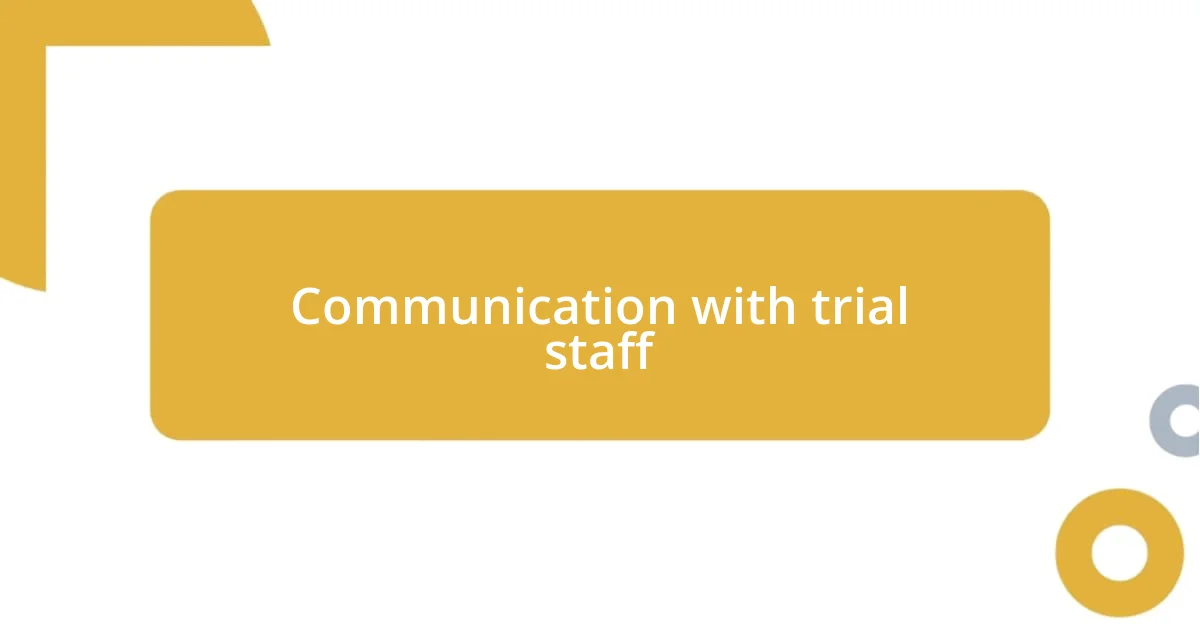
Communication with trial staff
Communication with trial staff plays a vital role in enhancing the overall experience. From my perspective, clarity and approachability are essential traits in the staff I interacted with. I recall a moment when I hesitated to ask a question about a medication’s side effects, but the nurse’s warm smile encouraged me to voice my concerns. This simple exchange made me feel valued and reassured, deepening my trust in the team.
It’s fascinating how a friendly demeanor can alleviate anxiety. I often found myself engaging in light-hearted conversations that not only broke the ice but also allowed me to feel more at ease. The staff seemed genuinely interested in my well-being, asking about my daily life and how I was coping with the trial. When a staff member took the time to remember my favorite hobbies, it struck a chord with me. It felt less transactional and more personal, elevating my experience.
It’s crucial to remember that effective communication is a two-way street. I learned to be proactive in my discussions. During my follow-up visits, I made it a point to share my thoughts about the trial openly. This led to more in-depth conversations, enhancing my understanding and participation. Have you ever felt burdened by a question you deemed trivial? I certainly have, yet asking those questions resulted in valuable insights that shaped my experience positively.
| Aspect | Impact on Experience |
|---|---|
| Approachability of Staff | Encourages open communication and builds trust. |
| Personalized Interactions | Creates a supportive environment that eases anxiety. |
| Proactive Engagement | Enhances understanding and fosters deeper discussions. |
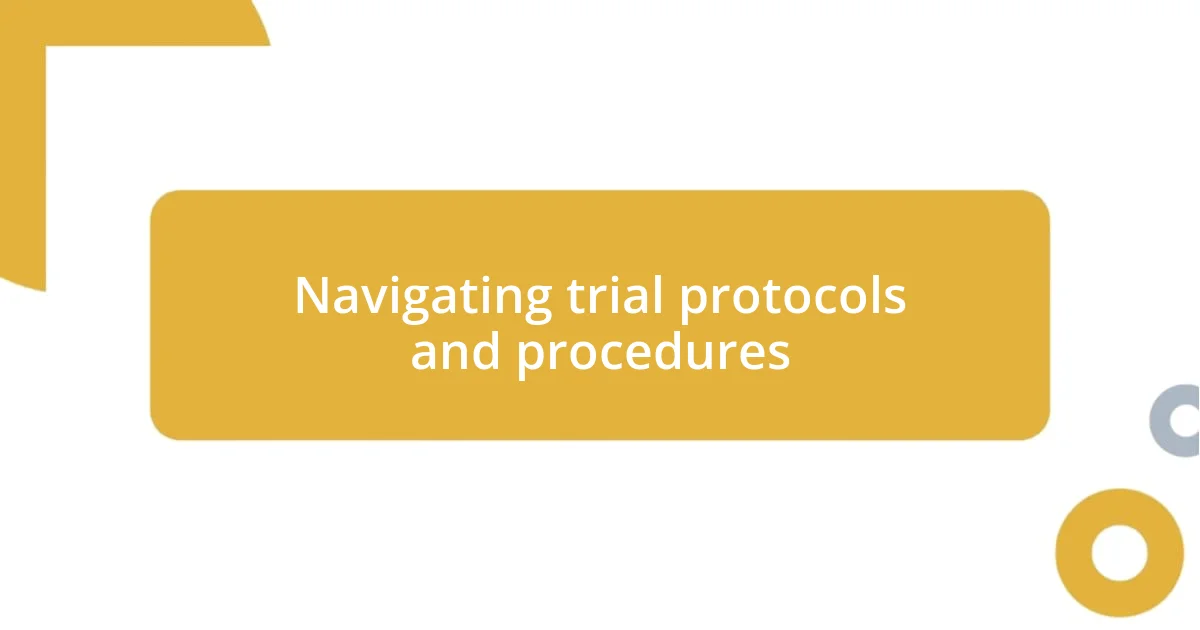
Navigating trial protocols and procedures
Navigating trial protocols and procedures can initially feel overwhelming. There were moments when I found myself fumbling through the paperwork, trying to digest the numerous forms and consent documents. I vividly remember the first time I had to sign off on a consent form; I felt like a deer in headlights, querying if I understood everything correctly. It was reassuring to know that the staff was willing to walk me through each detail, helping me grasp everything from eligibility criteria to the importance of adhering to dosage schedules.
As I progressed through the trial, I discovered the significance of having a personal checklist. This was my way of keeping track of appointments, upcoming procedures, and deadlines. Reflecting back, this simple tool made a huge difference; it transformed my experience from chaotic to manageable. The structure it provided helped me feel empowered, allowing me to focus more on my health and less on administrative details. Have you ever felt like you’re juggling too much at once? I certainly did, but creating this checklist turned my anxiety into organized action.
One thing I found particularly helpful was the pre-visit preparation provided by the site. They offered a guide on what to expect, which calmed my nerves significantly. When I walked into my appointments, I no longer felt like I was stepping into the unknown. Instead, I felt like I had a roadmap, which not only eased my anxiety but also fostered a deeper connection with the entire process. How valuable would it be for you to feel prepared and informed before each visit? For me, that knowledge transformed every appointment into a more engaging and less daunting experience.

Benefits of participating in trials
Participating in trials offers numerous benefits that can positively impact one’s health journey. I remember the rush of excitement I felt knowing that I was actively contributing to medical advancements. Each appointment felt purposeful as I reflected on how my involvement could help others facing similar health challenges. It’s vital to recognize that every small contribution counts in the big picture of medical research.
I also found that participation often provides access to cutting-edge treatments that might not be available otherwise. During my trial, I had access to a novel medication that showed incredible promise for my condition. How many people can say they were part of something groundbreaking like that? It not only boosted my hope but also connected me with other participants who shared this unique experience, creating a bond that was both supportive and motivating.
Another remarkable benefit was the heightened health monitoring I received throughout the trial. Regular check-ins and assessments meant that any changes in my condition were quickly addressed. I often chuckle at how I used to dread doctor visits, but this experience transformed my outlook. Rather than feeling like just another patient in a crowded waiting room, I felt seen and heard, which made me more invested in my health and well-being. Isn’t it refreshing to feel that kind of dedicated support?

Lessons learned from my experience
One significant lesson I learned is the importance of communication with the trial staff. I distinctly recall a moment when I had a question that I hesitated to ask. I wondered if it was too trivial or even embarrassing. But when I finally spoke up, not only did they patiently address my concerns, but it also turned out to be a crucial question that enhanced my understanding of the trial. This experience taught me that no question is too small when your health is on the line, and I encourage others to feel empowered to speak up.
Another key takeaway was the value of building relationships with fellow participants. I fondly remember chatting with someone in the waiting room who shared my condition. Our conversations helped me realize we were not alone in this journey; we were part of a supportive community. The camaraderie made the experience less isolating and reminded me that sharing stories can foster hope and resilience. Have you ever found solace in connecting with someone who truly understands your struggles? It’s a reminder that we’re stronger together.
Finally, I learned that maintaining an open mind can lead to unexpectedly positive outcomes. During one of the assessments, I was nervous about a side effect I had experienced. Instead of panicking, I shared my thoughts with the team. They provided detailed explanations that not only eased my worries but also led to adjustments in my treatment plan that worked better for me. This moments reinforced for me that being proactive and open can lead to profound improvements in your health experience. Wouldn’t it be rewarding to know that your voice can shape your care? I found that empowering.










